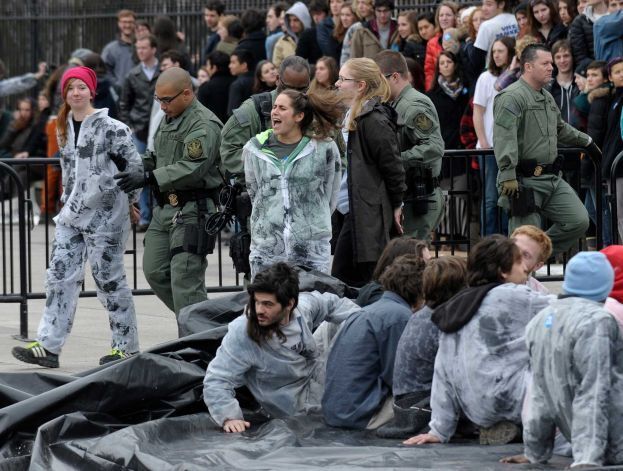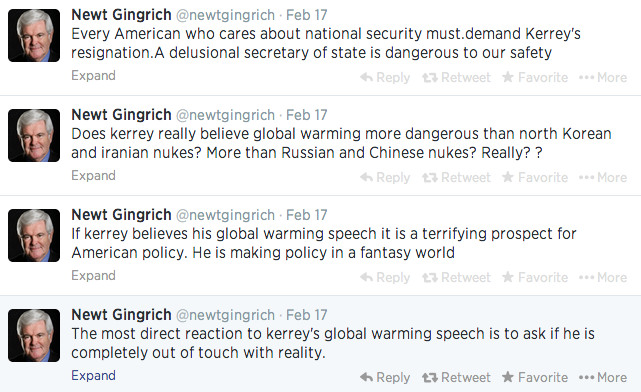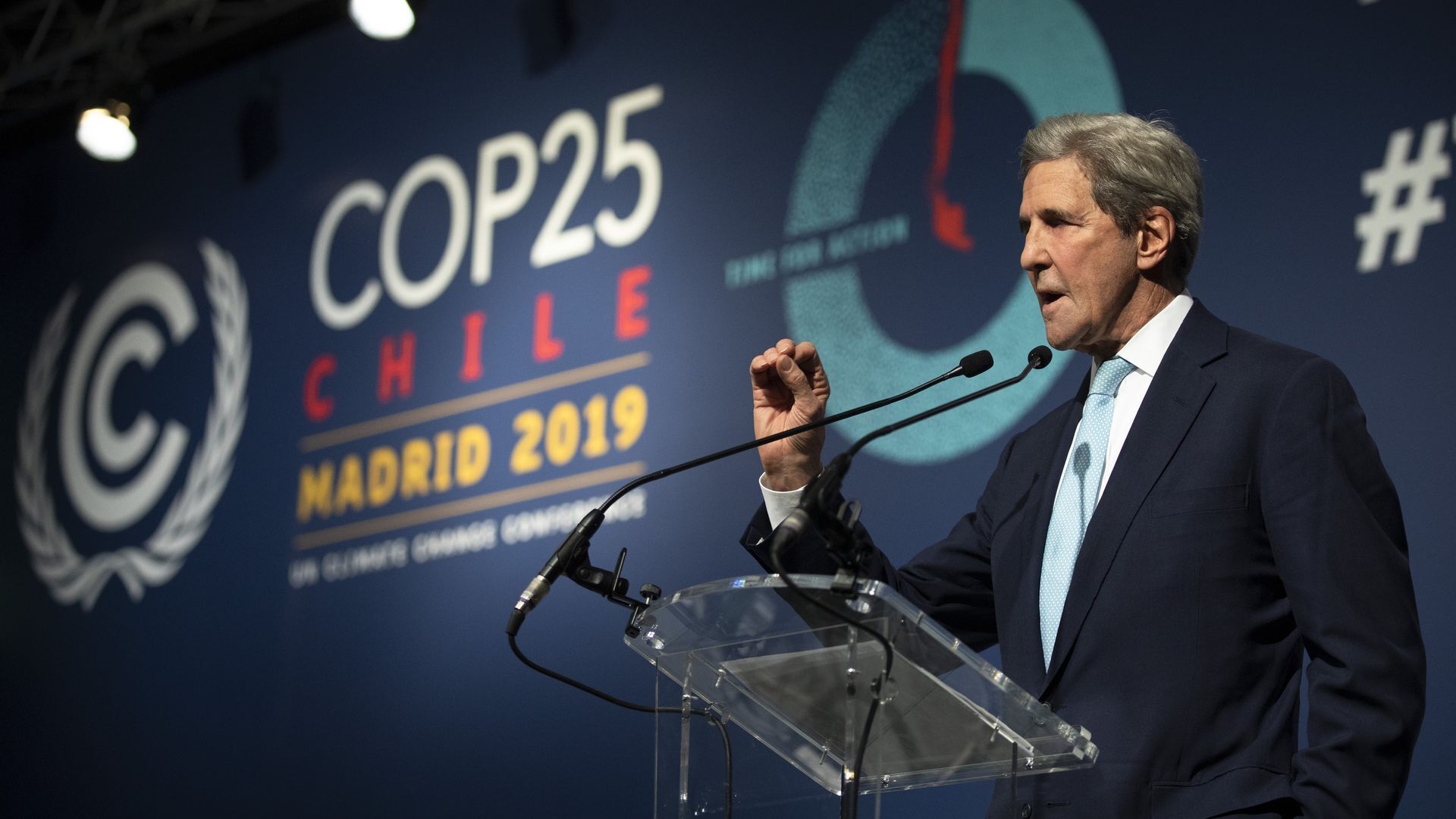 President-elect
Joe Biden has named former senator and Secretary of State John Kerry as
his special envoy for climate, sitting on the National Security Council.
Throughout his long career of public service, Kerry has been an ardent
environmentalist who seeks to find common ground through diplomacy. His
approach has found greater success on the international stage than with
American conservatives, despite repeated attempts.
President-elect
Joe Biden has named former senator and Secretary of State John Kerry as
his special envoy for climate, sitting on the National Security Council.
Throughout his long career of public service, Kerry has been an ardent
environmentalist who seeks to find common ground through diplomacy. His
approach has found greater success on the international stage than with
American conservatives, despite repeated attempts.
As a Massachusetts senator, Kerry worked desperately to salvage climate
legislation when it was abandoned by the Obama White House following the
Tea Party uprising of 2009. Lacking a unified Democratic caucus, Kerry
tried without success to find Republican votes for climate legislation
by working with former running mate Sen. Joe Lieberman (I-Conn.) and
Sen. Lindsey Graham (R-S.C.).
As Obama’s second Secretary of State, John Kerry’s diplomatic leadership
was key to the successful Paris agreement, which marked a dramatic
turnaround from the 2009 debacle of the Copenhagen climate talks. His
support for killing the Canada-to-US Keystone XL tar-sands pipeline – in
response to powerful pressure from climate activists – was also a change
in direction from Kerry’s predecessor Hillary Clinton, who fast-tracked
the permit process for the project. Like
Clinton,
however, Secretary of State Kerry was bullish on
fracking
as a means of energy diplomacy, despite its threat to the climate.
Kerry’s diplomatic approach has borne less fruit at home. Republicans
such as Newt
Gingrich
and Donald
Trump
mocked Secretary Kerry for calling global warming “perhaps the world’s
most fearsome weapon of mass destruction,” presaging the
burn-it-all-down Trump presidency.
During the Trump years, Kerry founded a new organization called World
War Zero, still attempting to find
Republicans to
get on board with climate action. Although Kerry’s organization
supposedly intends to build a broad coalition of climate activists,
World War Zero’s Republican participants include climate-science skeptic
John Kasich, who mocks youth climate
activists and
vilifies the Green New
Deal.
In his role Kerry will face several challenges unresolved by previous
administrations. To date, immigration, trade, peace, and climate policy
have been treated as wholly distinct milieus by government and advocates
alike. Remarkably, even energy and climate diplomacy have largely
operated on parallel tracks, with clashing agendas.
A critical test will be whether Kerry has say over international trade
agreements which have always trumped climate negotiations. The so-called
free-trade agenda has rendered international climate deals moot.
Similarly, it remains to be seen if Kerry will be an effective spokesman
for the global South as it is ravaged by fossil-fueled storms and floods
and drought, destabilizing governments and fueling the global migration
crisis.
The military euphemism is that climate pollution is a “threat
multiplier” – in other words, global conflict is now defined by the
devastation to human civilization that results from the industrial
destabilization of a habitable climate.
In response to this rising destabilization, right-wing movements around
the globe have seized on the politics of militarized nativism and
environmental exploitation, described approvingly by white-nationalist
ecologist Garrett Hardin as “lifeboat
ethics”
in 1974.
One hopes that Kerry’s position on the National Security Council could
mean the US military may shift away from its longtime role as the armed
protection for the global oil industry. Kerry is highly interested in
the military’s role during the Anthropocene. With his World War Zero
campaign, Kerry has brought together a long list of military brass and
former Defense Department officials.
Unfortunately, the primary narrative for climate policy within military
circles is one of responding to the rising threats of climate
destruction, with little to no engagement in ending climate pollution.
Of course, Kerry can’t guide international climate policy on his own.
The makeup of Biden’s team will determine what is possible.
Rahm Emanuel, the neoliberal who was instrumental in killing White
House support for climate
legislation
as Obama’s chief of staff, is being considered for U.S. Trade
Representative.
His selection would be a devastating setback.
Biden campaign advisor Heather Zichal, who has become
notorious
for joining the fracked-gas industry after leaving the Obama White
House, came to
prominence
as the top Kerry climate policy staffer on his presidential campaign and
in his Senate office. Zichal has been mentioned as a possible high-level
staffer in the Biden White House despite broad opposition from climate
activists.
Biden’s pick for Secretary of State, Antony Blinken, began his career
studying fossil-fuel geopolitics. He wrote his
dissertation
in the 1980s on the Siberian pipeline
crisis,
in which the Reagan administration imposed far-reaching sanctions on
oil-sector technology sharing in an attempt to block the pipeline’s
construction. Blinken criticized the sanctions effort. His career since
has been
interventionist
and pro-fossil-fuel
development.
Surmounting the challenges of being Biden’s international climate czar
will be a life-defining test for the 76-year-old statesman.
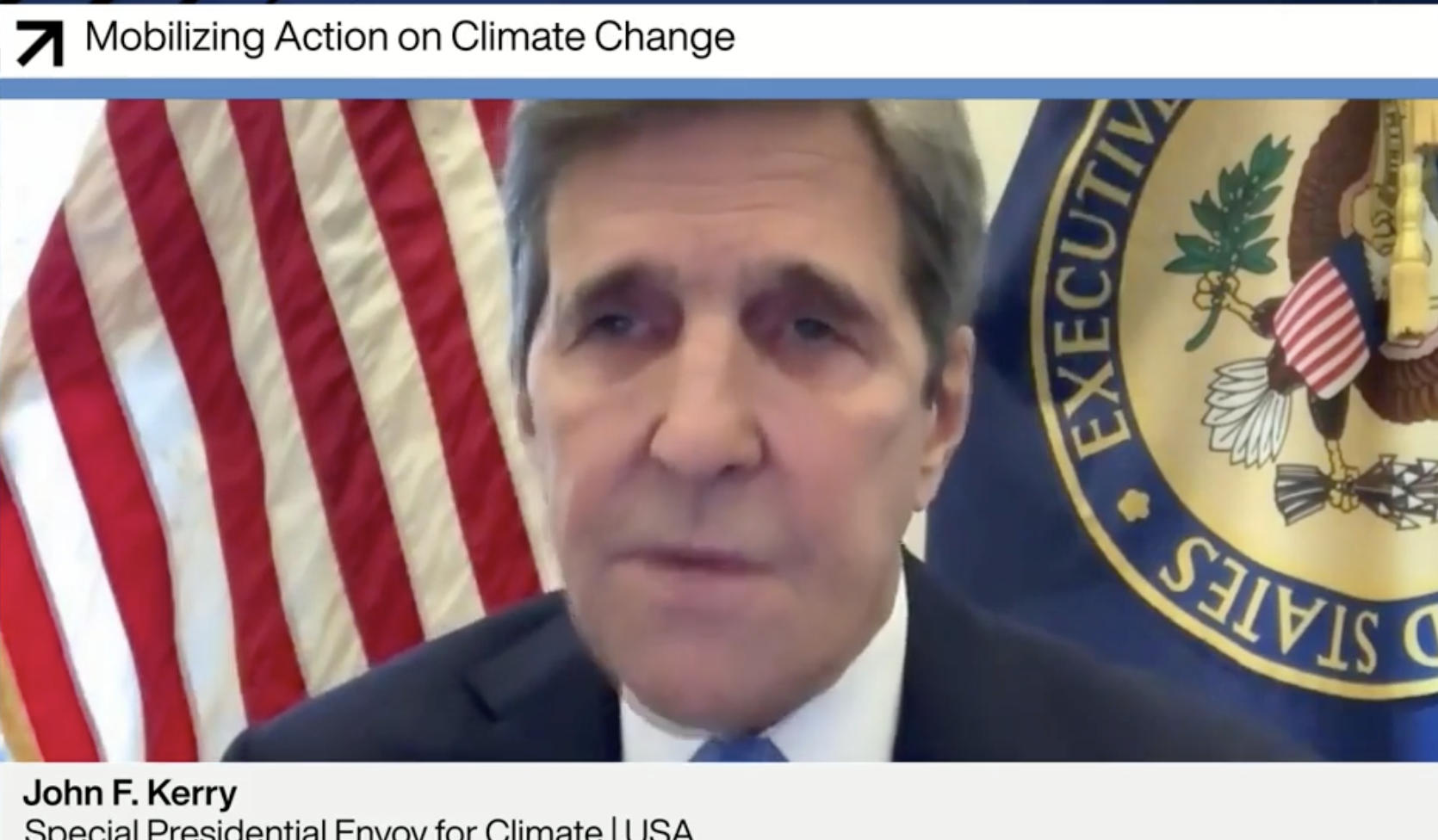 Speaking at the
Davos World Economic Forum, US Climate Envoy John Kerry offered a strong
critique of natural gas: “Gas is primarily methane, and we have a huge
methane problem, folks.”
Speaking at the
Davos World Economic Forum, US Climate Envoy John Kerry offered a strong
critique of natural gas: “Gas is primarily methane, and we have a huge
methane problem, folks.”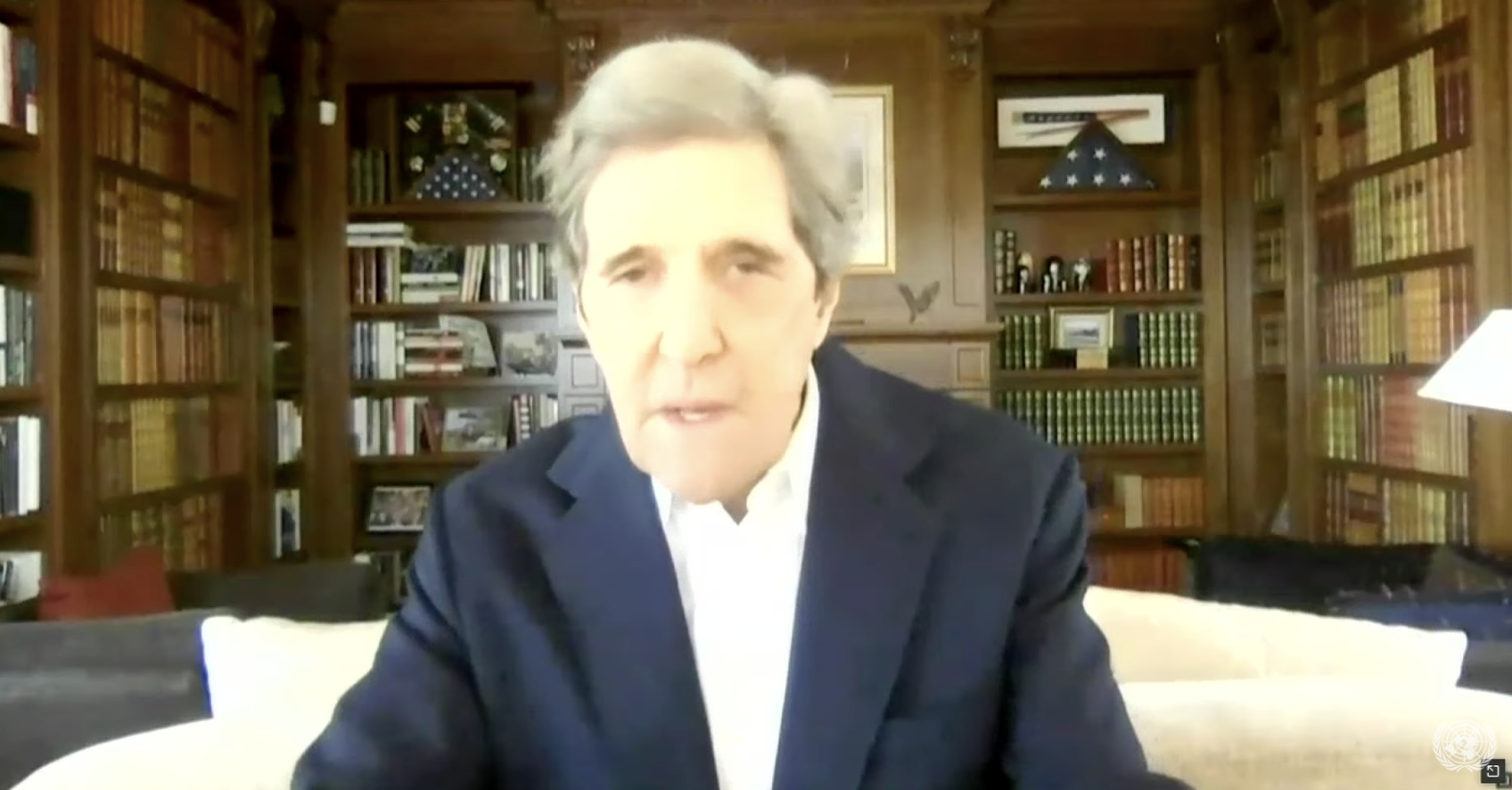
 President-elect
Joe Biden has named former senator and Secretary of State John Kerry as
his special envoy for climate, sitting on the National Security Council.
Throughout his long career of public service, Kerry has been an ardent
environmentalist who seeks to find common ground through diplomacy. His
approach has found greater success on the international stage than with
American conservatives, despite repeated attempts.
President-elect
Joe Biden has named former senator and Secretary of State John Kerry as
his special envoy for climate, sitting on the National Security Council.
Throughout his long career of public service, Kerry has been an ardent
environmentalist who seeks to find common ground through diplomacy. His
approach has found greater success on the international stage than with
American conservatives, despite repeated attempts.